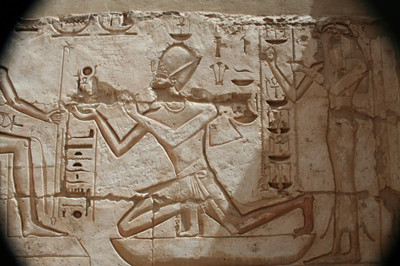It's one of the earliest societies that we can think of as a state in the modern sense, and as one of its earliest leaders, King Den had to address all the problems of control and co-ordination that a modern state has to confront today.

您現在的位置: 首頁 > 英語聽力 > 英語視頻聽力 > 紀錄片 > BBC記錄片《百件藏品話滄桑》 > 正文

It's one of the earliest societies that we can think of as a state in the modern sense, and as one of its earliest leaders, King Den had to address all the problems of control and co-ordination that a modern state has to confront today.

| 重點單詞 | 查看全部解釋 | |||
| address | [ə'dres] |
想一想再看 n. 住址,致詞,講話,談吐,(處理問題的)技巧 |
||
| mace | [meis] |
想一想再看 n. 釘頭槌,狼牙棒 n. 權標,執權標者 vt. 向 |
聯想記憶 | |
| tend | [tend] |
想一想再看 v. 趨向,易于,照料,護理 |
||
| rocky | ['rɔki] |
想一想再看 adj. 巖石的,像巖石的,堅硬的,麻木的,困難重重的 |
||
| statement | ['steitmənt] |
想一想再看 n. 聲明,陳述 |
聯想記憶 | |
| control | [kən'trəul] |
想一想再看 n. 克制,控制,管制,操作裝置 |
||
| status | ['steitəs] |
想一想再看 n. 地位,身份,情形,狀況 |
聯想記憶 | |
| context | ['kɔntekst] |
想一想再看 n. 上下文,環境,背景 |
聯想記憶 | |
| confront | [kən'frʌnt] |
想一想再看 vt. 面臨,對抗,遭遇 |
||
| projected | [prə'dʒektid] |
想一想再看 adj. 投影的,投射 v. 投射(project的過去 |
